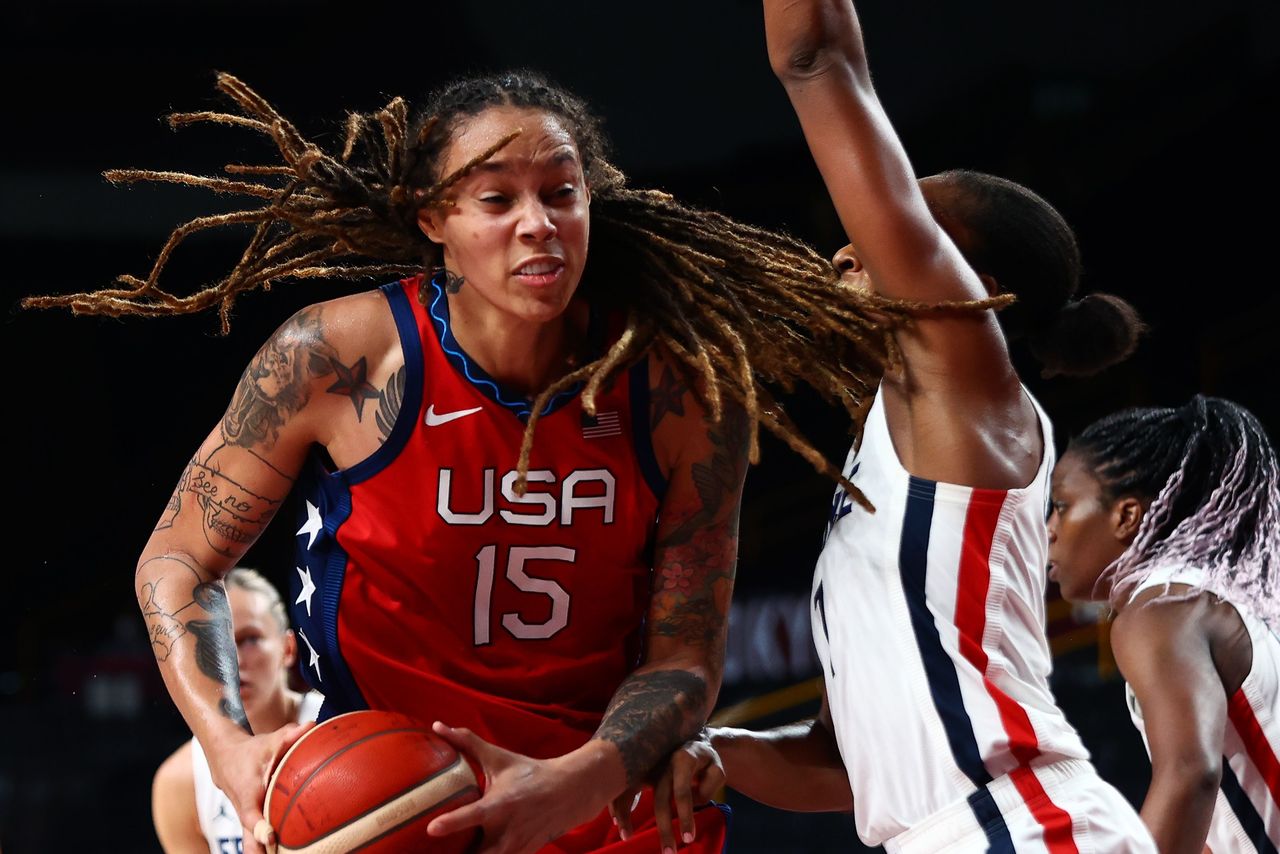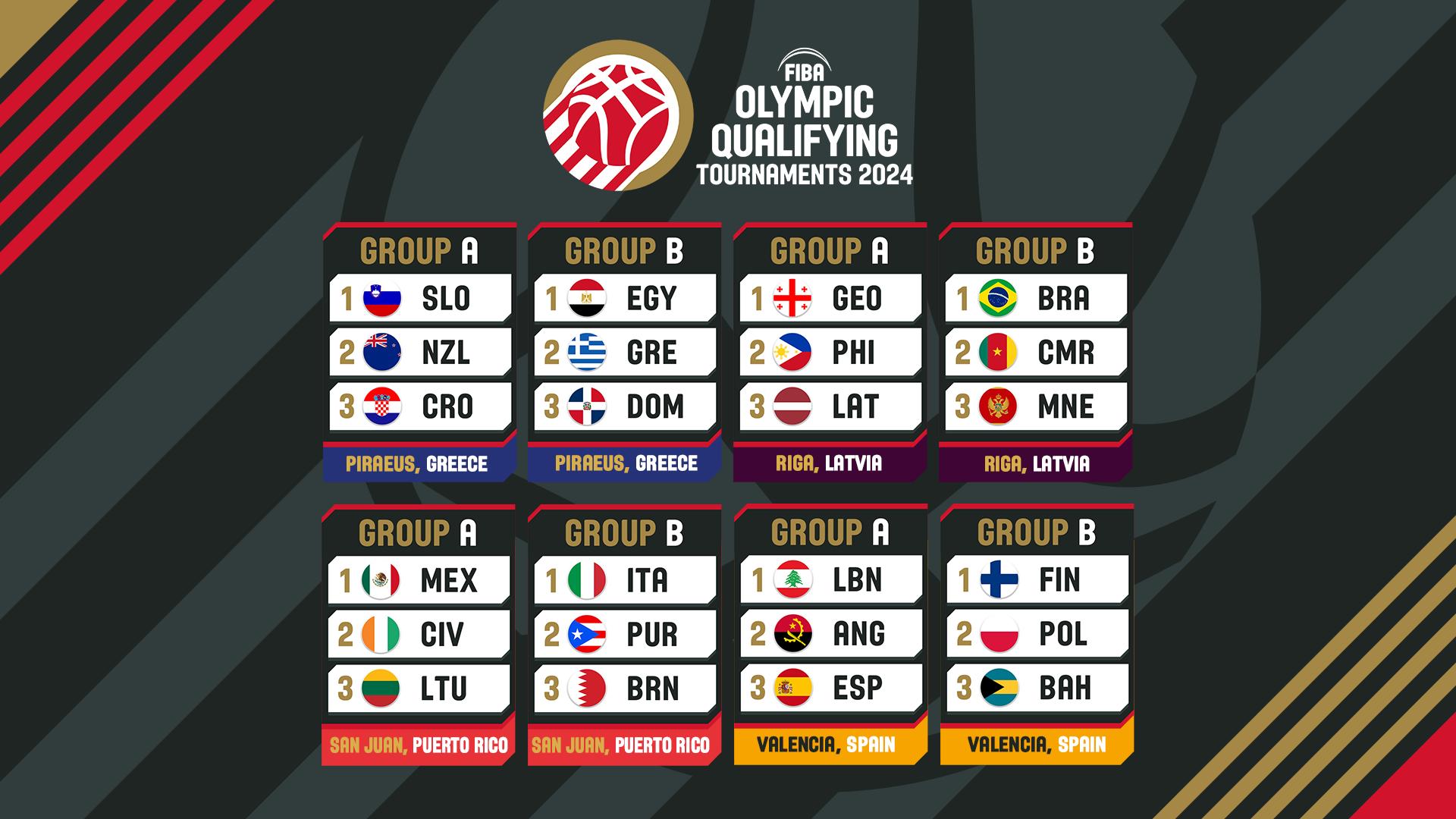History and Evolution of Olympic Basketball Finals: Olympics Basketball Finals

The Olympic basketball finals have witnessed a captivating evolution, showcasing the game’s strategic shifts, rule changes, and the emergence of legendary players. From its humble beginnings to the modern-day spectacle, the finals have consistently delivered nail-biting finishes and unforgettable moments that have etched themselves into basketball history.
Early Years and the Rise of the United States
The first Olympic basketball tournament was held in 1936 in Berlin, Germany, with the United States dominating the competition and securing the gold medal. The early years of Olympic basketball were characterized by a slower pace and a more deliberate style of play, emphasizing teamwork and fundamentals. The game was primarily played on outdoor courts, and the lack of a three-point line made scoring more challenging. The United States, with its superior height and athleticism, quickly established itself as a dominant force in the tournament. The American team, known as the “All-American Five,” showcased their exceptional skills and athleticism, easily defeating all their opponents, including Canada, the Philippines, and Argentina, en route to the gold medal.
The Emergence of International Competition and Strategic Shifts
The 1950s and 1960s saw the rise of international competition in basketball, with teams from countries like the Soviet Union, Brazil, and Yugoslavia challenging the American dominance. This shift in the competitive landscape forced the United States to adapt its playing style and incorporate more strategic elements. The game began to evolve, with an emphasis on fast breaks, ball movement, and perimeter shooting. Teams started employing zone defenses, which forced the Americans to develop more creative offensive strategies. The 1960 Rome Olympics marked a turning point, as the Soviet Union, led by the legendary Sergei Belov, gave the United States a run for their money. The Soviets, known for their intricate passing and team play, pushed the Americans to the limit, but the United States ultimately prevailed in a close game.
The Introduction of the Three-Point Line and its Impact, Olympics basketball finals
The introduction of the three-point line in 1980 at the Moscow Olympics revolutionized the game of basketball. This rule change, implemented to encourage more outside shooting, significantly impacted the game’s offensive strategies. The three-point line opened up new scoring opportunities and added a new dimension to the game. Teams began to prioritize spacing, ball movement, and shot selection, and the game became more fast-paced and dynamic. The 1984 Los Angeles Olympics witnessed the rise of the “Dream Team,” a star-studded American squad featuring NBA superstars like Michael Jordan, Magic Johnson, and Larry Bird. The Dream Team’s dominance, fueled by their exceptional skills and the three-point line, highlighted the impact of the rule change on the game. The Dream Team’s undefeated run in the 1992 Barcelona Olympics cemented the three-point line’s place as an integral part of the game.
The Rise of Global Powerhouses and the Changing Landscape
The 21st century has witnessed the rise of global basketball powerhouses, with teams from Spain, Argentina, France, and Australia challenging the United States for supremacy. These teams, led by skilled players and employing modern basketball tactics, have made the Olympic basketball finals increasingly competitive. The United States, despite its continued dominance, has faced tougher challenges in recent years. The 2004 Athens Olympics saw Argentina, led by Manu Ginobili, defeat the United States in the semifinals, marking a watershed moment in Olympic basketball history. The United States, with its reliance on NBA players, has had to adjust to the changing landscape, with a greater emphasis on team play and international experience.
Key Players and Memorable Moments
The history of Olympic basketball finals is filled with legendary players and unforgettable moments. Michael Jordan’s iconic performances, Magic Johnson’s brilliant playmaking, and Larry Bird’s clutch shooting have become synonymous with American basketball dominance. International stars like Manu Ginobili, Pau Gasol, and Tony Parker have challenged the American reign, showcasing their exceptional skills and leadership. The 2012 London Olympics saw the United States, led by LeBron James and Kevin Durant, defeat Spain in a thrilling final, highlighting the continued dominance of the American team. The 2016 Rio Olympics, however, saw the United States face a tough challenge from Serbia, who pushed them to the limit before ultimately losing in a close game. The 2020 Tokyo Olympics, delayed due to the COVID-19 pandemic, saw the United States once again secure the gold medal, defeating France in a hard-fought final.
Key Players and Teams in Recent Olympic Basketball Finals

The Olympic basketball finals have witnessed a constellation of exceptional talent, with legendary players and teams leaving their mark on the sport’s history. These athletes have not only showcased their individual brilliance but have also redefined the boundaries of team dynamics and strategic brilliance.
Key Players and Teams
The recent Olympic basketball finals have been dominated by a handful of exceptional players and teams, who have consistently pushed the boundaries of the sport. Here are some of the most influential players and teams:
USA Men’s National Team (Dream Team)
The USA Men’s National Team, often referred to as the “Dream Team,” has been a dominant force in international basketball, consistently winning gold medals in recent Olympic finals.
- LeBron James: Arguably the greatest basketball player of all time, LeBron James has been a pivotal figure in the USA’s Olympic success. His versatility, leadership, and unwavering determination have been instrumental in securing gold medals in 2008, 2012, and 2016.
- Kevin Durant: Known for his exceptional scoring ability and clutch performances, Kevin Durant has been a consistent threat for the USA Men’s National Team. His contributions in the 2012 and 2016 finals were crucial in securing victory.
- Stephen Curry: Stephen Curry, the revolutionary shooter, has brought a new dimension to the USA’s offensive strategy. His ability to create space and drain three-pointers has been a game-changer, particularly in the 2016 finals.
Spain Men’s National Team
Spain has emerged as a formidable force in international basketball, consistently challenging the USA for the gold medal in recent Olympic finals.
- Pau Gasol: A dominant force in the paint, Pau Gasol has been the cornerstone of Spain’s success. His versatility, rebounding prowess, and ability to score inside and out have made him a nightmare for opposing defenses.
- Marc Gasol: Pau’s younger brother, Marc Gasol, has also been a key contributor to Spain’s success. His defensive intensity, shot-blocking ability, and ability to control the paint have been instrumental in Spain’s rise to prominence.
- Ricky Rubio: Ricky Rubio, a dynamic point guard, has brought a unique blend of speed, passing, and ball-handling skills to Spain’s offense. His ability to create scoring opportunities for teammates and control the tempo of the game has been crucial in Spain’s recent successes.
Argentina Men’s National Team
Argentina has emerged as a global power in basketball, particularly during the 2000s, with a team that redefined the sport’s landscape.
- Manu Ginobili: A dynamic guard with exceptional scoring ability, Manu Ginobili has been a driving force behind Argentina’s success. His ability to create his own shot, make clutch plays, and lead by example has been instrumental in Argentina’s victory in the 2004 Olympics.
- Luis Scola: A relentless scorer and rebounder, Luis Scola has been a dominant force in the paint for Argentina. His ability to battle for every possession and score with his back to the basket has been a key factor in Argentina’s success.
Notable Performances and Achievements
| Team | Olympic Finals | Notable Performances |
|---|---|---|
| USA Men’s National Team | 2008, 2012, 2016 | LeBron James’ dominant performances in 2008, 2012, and 2016; Kevin Durant’s clutch scoring in 2012 and 2016; Stephen Curry’s revolutionary shooting in 2016. |
| Spain Men’s National Team | 2008, 2012 | Pau Gasol’s dominance in the paint; Marc Gasol’s defensive intensity; Ricky Rubio’s ball-handling skills and court vision. |
| Argentina Men’s National Team | 2004 | Manu Ginobili’s exceptional scoring and leadership; Luis Scola’s relentless rebounding and scoring. |
Global Impact and Cultural Significance of Olympic Basketball Finals

The Olympic basketball finals, a pinnacle of athletic achievement, transcend mere sporting events. They serve as a global platform for showcasing the pinnacle of basketball talent, fostering international camaraderie, and inspiring millions around the world. The finals’ impact extends far beyond the court, influencing cultural trends, promoting sportsmanship, and inspiring future generations of athletes.
Global Reach and Cultural Impact
The Olympic basketball finals captivate a worldwide audience, uniting people from diverse backgrounds in shared passion and excitement. The event’s global reach is evident in the massive television viewership, social media engagement, and cultural influence it commands. A testament to the finals’ global appeal is the widespread adoption of basketball as a popular sport in countries that traditionally haven’t embraced it. The Olympics have played a significant role in introducing basketball to new audiences, fostering a global community of basketball enthusiasts.
| Region | Cultural Impact | Example |
|---|---|---|
| North America | Basketball is a deeply ingrained part of American culture, and the Olympics provide a platform to showcase the country’s basketball prowess. | The dominance of the USA Men’s National Basketball Team, known as the “Dream Team,” has had a significant impact on global basketball. |
| Europe | The Olympics have helped to elevate the profile of European basketball, with teams like Spain, France, and Lithuania consistently performing well. | The rise of European players in the NBA, such as Pau Gasol and Tony Parker, has been influenced by their success at the Olympics. |
| Asia | The Olympics have played a crucial role in popularizing basketball in Asia, with countries like China, Japan, and South Korea making significant strides in the sport. | The success of the Chinese Women’s National Basketball Team, particularly in the 2004 Olympics, has inspired a new generation of female athletes. |
The Olympics basketball finals are always a hot ticket, and this year was no different! The US team, known for their dominance, usa basketball team is a force to be reckoned with, and they proved it once again with their stellar performance in the finals.
The game was intense, but the US team pulled through for the win, showcasing their incredible skills and teamwork.
The Olympics basketball finals are always a nail-biter, but this year’s matchup was especially intense. You know, it’s hard to beat the legacy of dominance that team USA men’s basketball has built over the years. It’s no surprise that they’re always considered a top contender, and they definitely lived up to the hype this time around!
